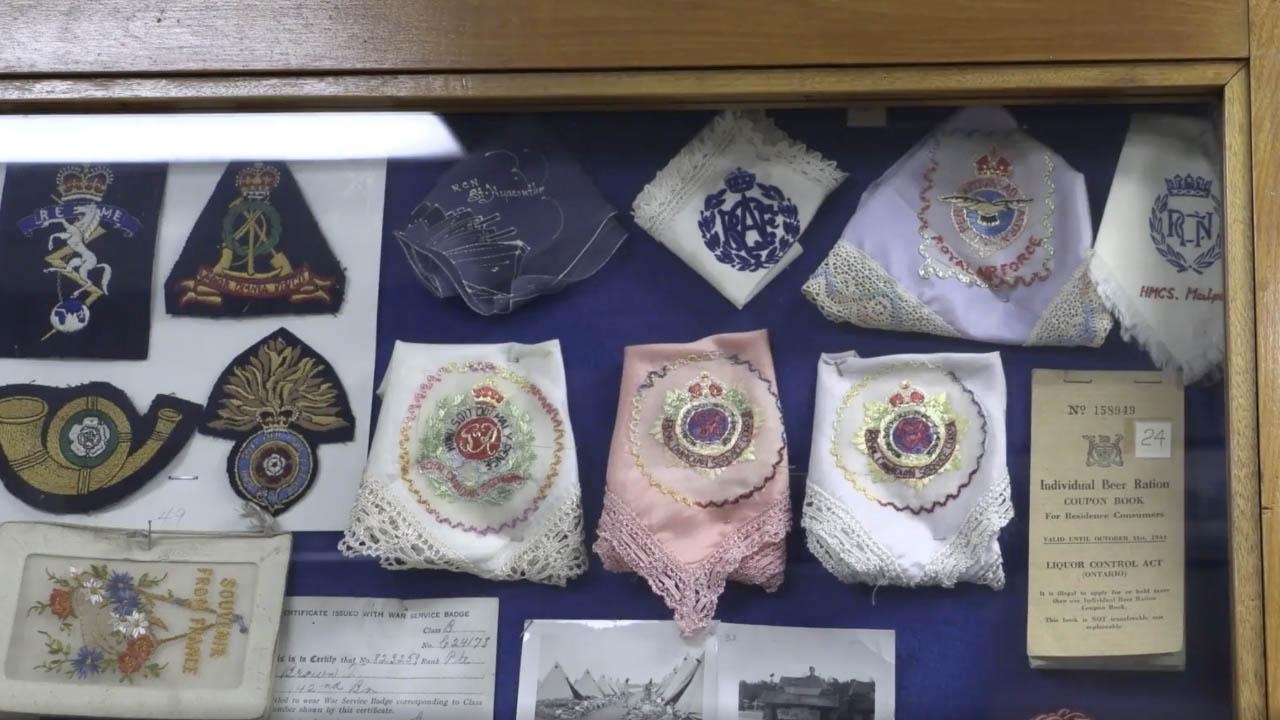Local veteran calling for support all year round
 CREDIT: KATE OTTERBEIN
CREDIT: KATE OTTERBEINHandkerchiefs handsewn for veterans at war from those thinking about them.
A local veteran is speaking out about the impact sending letters to retired veterans can have — beyond just Valentine’s Day or Remembrance Day.
“I think mentally, Canadians have a tendency to try to prioritize veterans with Nov. 11,” said Reverend Troy Dingwell, chaplain for London’s Victory Branch Legion. “Once that’s all over with the two minutes of silence, then they go on with their day. The veterans’ lives still continue, the loneliness that they share, the hurt, the pain they have.”
When a veteran receives a card, Dingwell said it shows someone is thinking about them and cares.
“I visit many veterans in Parkwood and many of them have no families. They have nobody. So receiving a card would be extremely helpful psychologically.”
Valentines for Veterans is a long running program in London. It gives Londoners the chance to connect with veterans on the occasion of Feb. 14, but beyond that, it can be extremely impactful to have a lasting relationship with them via letters, emails, or any other forms of communication.
“I’m sure that the possibility and the opportunity is there that if people wanted to take some time to go to Parkwood and if there’s a veteran you get the name from the local legion, I’m sure that they could help that individual go and just pay a visit.”
Whether you meet a veteran face to face or not, Dingwell said there will still be a lasting relationship and connection.
A study was done in San Diego on this topic, called Caring Cards. It was based around veterans making and sending cards to other veterans earlier in and still struggling in their mental health journey and recovery.
“The group was really fun, super unstructured,” said Blaire Ehret, clinical psychologist and former staff psychologist at Veterans Affairs San Diego. “They would listen to music, bring snacks, and it was super different than any other therapy group we had at the clinic so it became pretty popular.”
Through this group, some connections were made between those making the cards and those receiving them, a lot of whom were leaving an inpatient stay after suicidal thoughts or attempts.
“I think at the end of the day, veteran or non-veteran, we want to feel a connection to other people,” said Ehret. “A big force of what drives if we’re talking about suicide in particular, is not feeling connected to other people or feeling that you’re a burden.”
Ehret said the connection of veteran to veteran is so special because they truly understand what the other has been through. But that doesn’t make cards from a non-veteran any less special.
“I remember this one card had a sun on it with sunglasses on it and the person said that, ‘I have this on my fridge and it actually helps me get out of bed each day and makes me feel like I need to get moving and in the sun.”
Each person responds differently to cards, whether it be from an image or the words. But the study found that more people than not had very positive feedback and effects from these cards.
If you’re wanting to send cards to a local veteran, contact your local legion. There are many people at the legion who will be able to put you in contact with veterans and help you make a positive impact on their lives.

















